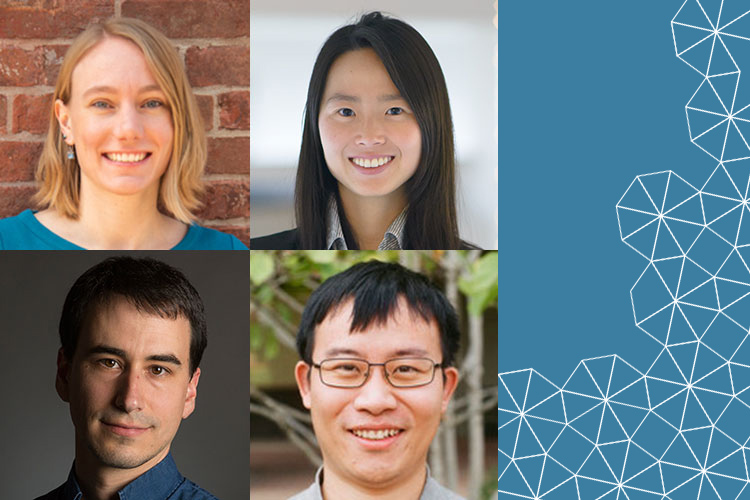Four Early-Career Scholars Named Sloan Research Fellows

Four UC Berkeley assistant professors have been awarded a Sloan Research Fellowship, one of the most prestigious honors given to early-career scientific researchers.
The four are among 118 new 2022 fellows announced this week by the Alfred P. Sloan Foundation. The fellowships recognize young scholars whose “achievements and potential place them among the next generation of scientific leaders in the U.S. and Canada,” the foundation said in an announcement.
Berkeley’s new fellows are Yvette Fisher of neurobiology and molecular and cell biology, Grace Gu of mechanical engineering, Avishay Tal of electrical engineering and computer sciences and Ruixiang Zhang of mathematics. Each will receive a two-year, $75,000 fellowship; the fellows can use this funding to support their research.
Since the first Sloan Research Fellowships were awarded in 1955, 291 Berkeley faculty members have received the honor.
Meet the new Berkeley fellows:
Yvette Fisher seeks to understand how the nervous system processes information under ever-changing conditions, using fruit flies as a model. With the help of a variety of tools, including electrophysiology, two-photon imaging, advanced genetic approaches and quantitative behavioral analysis, Fisher’s research aims to decode how a fruit fly’s brain is able to construct and maintain a coherent sense of direction.
Grace Gu combines a variety of methods, including artificial intelligence, mechanical engineering and materials science, to advance the field of additive manufacturing, also known as 3D printing. The goal of the work is to make additive manufacturing more accessible, economical and ubiquitous for creating a variety of products, including helmets, resilient and lightweight structural materials, soft robotics and biomedical devices.
Avishay Tal studies theoretical computer science, with a focus on computational complexity, the analysis of Boolean functions, circuit complexity, formula complexity, query complexity, pseudorandomness, learning, combinatorics, quantum computing and the connections between algorithms and lower bounds.
Ruixiang Zhang conducts research on a variety of problems related to harmonic analysis, including Euclidean harmonic analysis and harmonic analysis on locally symmetric spaces, and research in analytic number theory and additive combinatorics.
